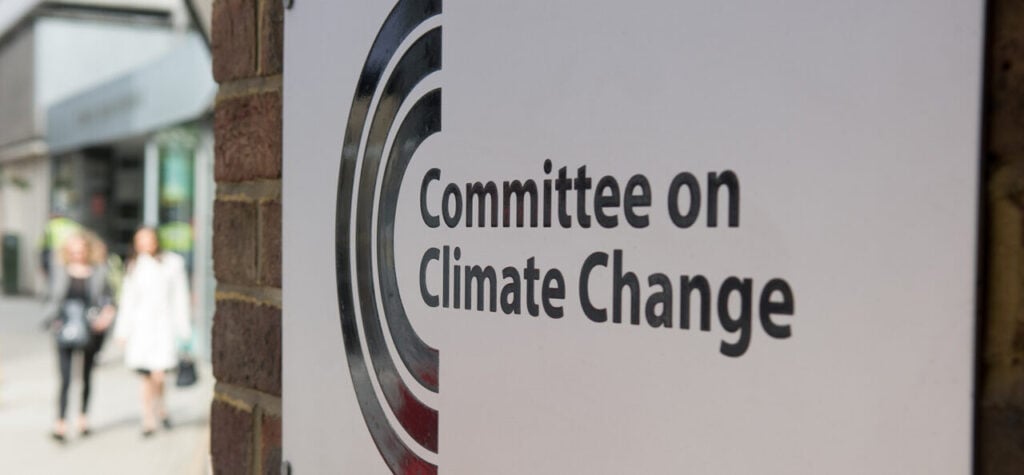The Climate Change Committee (CCC) has responded to the Scottish government’s first request for carbon emissions reduction advice.
As it does for the UK government, Northern Ireland assembly and Welsh parliament, the CCC has set out its recommendations for Scotland’s carbon budgets and how to meet them.
The CCC was established under the Climate Change Act of 2008, is required to regularly advise the UK government on its legally binding carbon emissions limits, known as the carbon budget, as well as provide advice to the government on how this can be achieved.
For the 2026-2030 period, it recommends that Scotland’s carbon emissions reach 57% lower than 1990 levels, including its share of international aviation and shipping levels. By the period between 2041 and 2045, the CCC says Scottish carbon emissions should be 97% lower than 1990 levels.
According to the committee, as of 2022, emissions were 50% below 1990 levels. It also states that meeting the budgets it has recommended will have a net cost of about 0.4% of Scotland’s GDP per year, but will also bring “significant” wider economic benefits for the country.
Professor Piers Forster, interim chair of the CCC, said the advice is a “good news story about how Scotland can decarbonise.”
He added: “We do need to see action now. The Scottish government has devolved powers to deliver the necessary emissions reductions in key sectors, particularly buildings, surface transport, agriculture and land use.”
In its pathways, the CCC sees nearly half of Scotland’s emissions reductions coming from electrification, in particular the rollout of EVs.
The CCC’s advice suggests that heat pumps and EVs could be deployed in Scotland as rapidly as in other countries, if models like Norway and Denmark’s EV rollout and Sweden and Finland’s for heat pumps are followed.
Pathways for Scotland projected by the committee see the capacity of offshore and onshore wind and solar more than triple, from 15GW in 2023 to 49GW by 2035, increasing to 66GW by 2045. This contributes 98% of electricity generation in the country in 2035.
By 2035, the CCC projects that three-fifths of cars and vans on Scottish roads will be fully electric, reaching 94% of cars and vans by 2045. In 2023, the proportion was 2.2% of cars and 0.8% for vans.
In its UK-wide carbon budget, the CCC forecasts that by 2040, around 80% of cars and 74% of vans on UK roads will be EVs. Speaking at an industry event last month, CCC CEO Emma Pinchbeck called transport the “hero sector” for decarbonisation over the next decade.
The CCC makes 18 priority recommendations to the Scottish government to meet its carbon budgets, including expanding EV charging and travel infrastructure, working with the UK government to develop engagement strategy to provide clear, trusted information about the most impactful low-carbon choices for households.
Another key recommendation by the CCC is that the UK government acts to make electricity cheaper. The Scottish government should work with the Westminster government to ensure policy costs and levies are removed from electricity bills. This will impact Scotland’s ability to decarbonise at the pace it has set.






